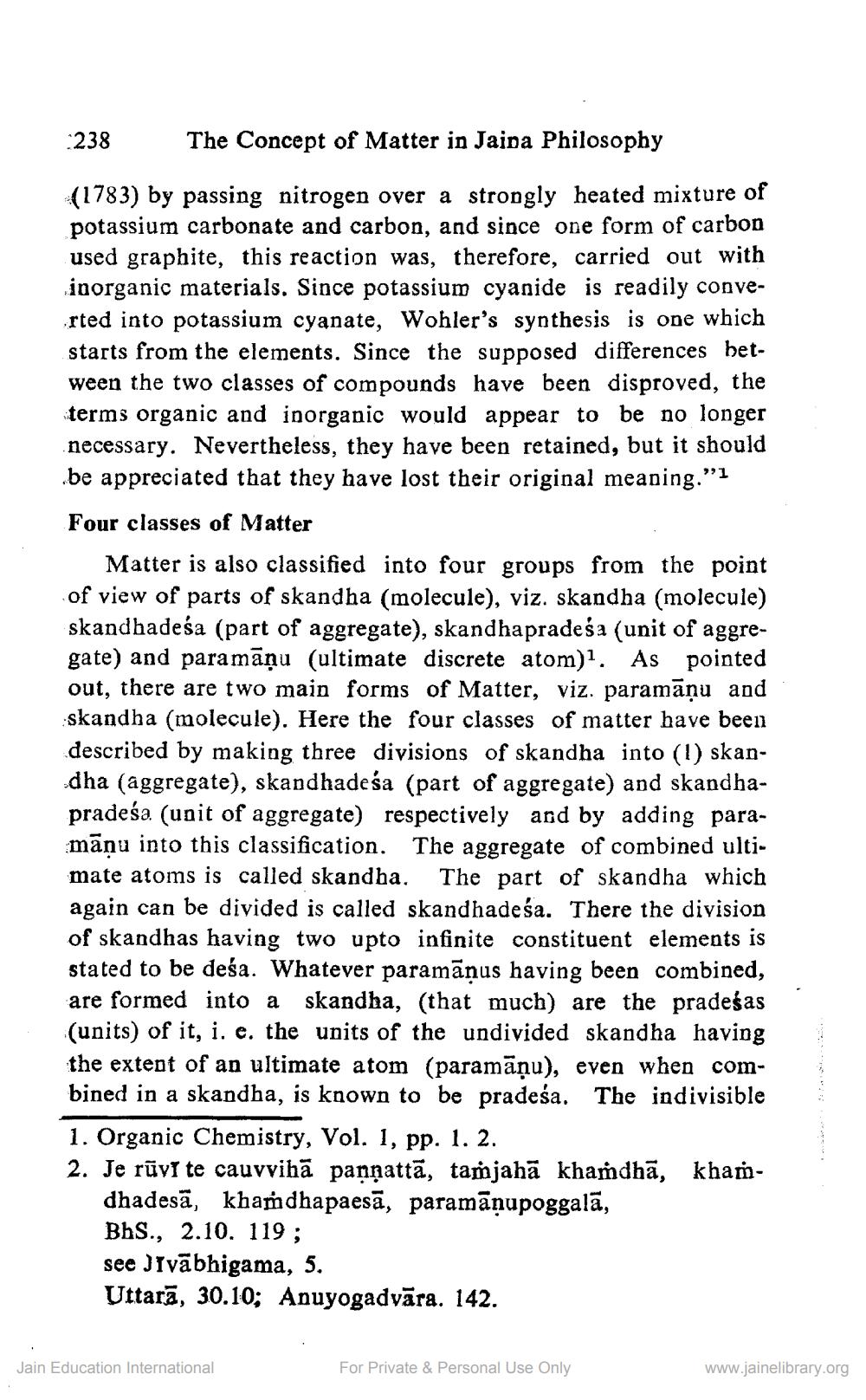________________
238
The Concept of Matter in Jaipa Philosophy
(1783) by passing nitrogen over a strongly heated mixture of potassium carbonate and carbon, and since one form of carbon used graphite, this reaction was, therefore, carried out with inorganic materials. Since potassium cyanide is readily converted into potassium cyanate, Wohler's synthesis is one which starts from the elements. Since the supposed differences between the two classes of compounds have been disproved, the terms organic and inorganic would appear to be no longer necessary. Nevertheless, they have been retained, but it should be appreciated that they have lost their original meaning.") Four classes of Matter
Matter is also classified into four groups from the point of view of parts of skandha (molecule), viz. skandha (molecule) skandhadeśa (part of aggregate), skandhapradeśa (unit of aggregate) and paramāņu (ultimate discrete atom). As pointed out, there are two main forms of Matter, viz. paramāņu and skandha (molecule). Here the four classes of matter have been described by making three divisions of skandha into (1) skandha (aggregate), skandhadeśa (part of aggregate) and skandhapradeśa. (unit of aggregate) respectively and by adding paramānu into this classification. The aggregate of combined ultimate atoms is called skandha. The part of skandha which again can be divided is called skandhadeśa. There the division of skandhas having two upto infinite constituent elements is stated to be deśa. Whatever paramānus having been combined, are formed into a skandha, (that much) are the pradeśas (units) of it, i. e. the units of the undivided skandha having the extent of an ultimate atom (paramāņu), even when combined in a skandha, is known to be pradeśa. The indivisible 1. Organic Chemistry, Vol. 1, pp. 1. 2. 2. Je rūvi te cauvvihā pannattā, tamjahā khamdhā, kham
dhadesā, khadhapaesā, paramāņupoggalā, Bhs., 2.10. 119; see Jivābhigama, 5. Uttarā, 30.10; Anuyogadvāra. 142.
Jain Education International
For Private & Personal Use Only
www.jainelibrary.org




